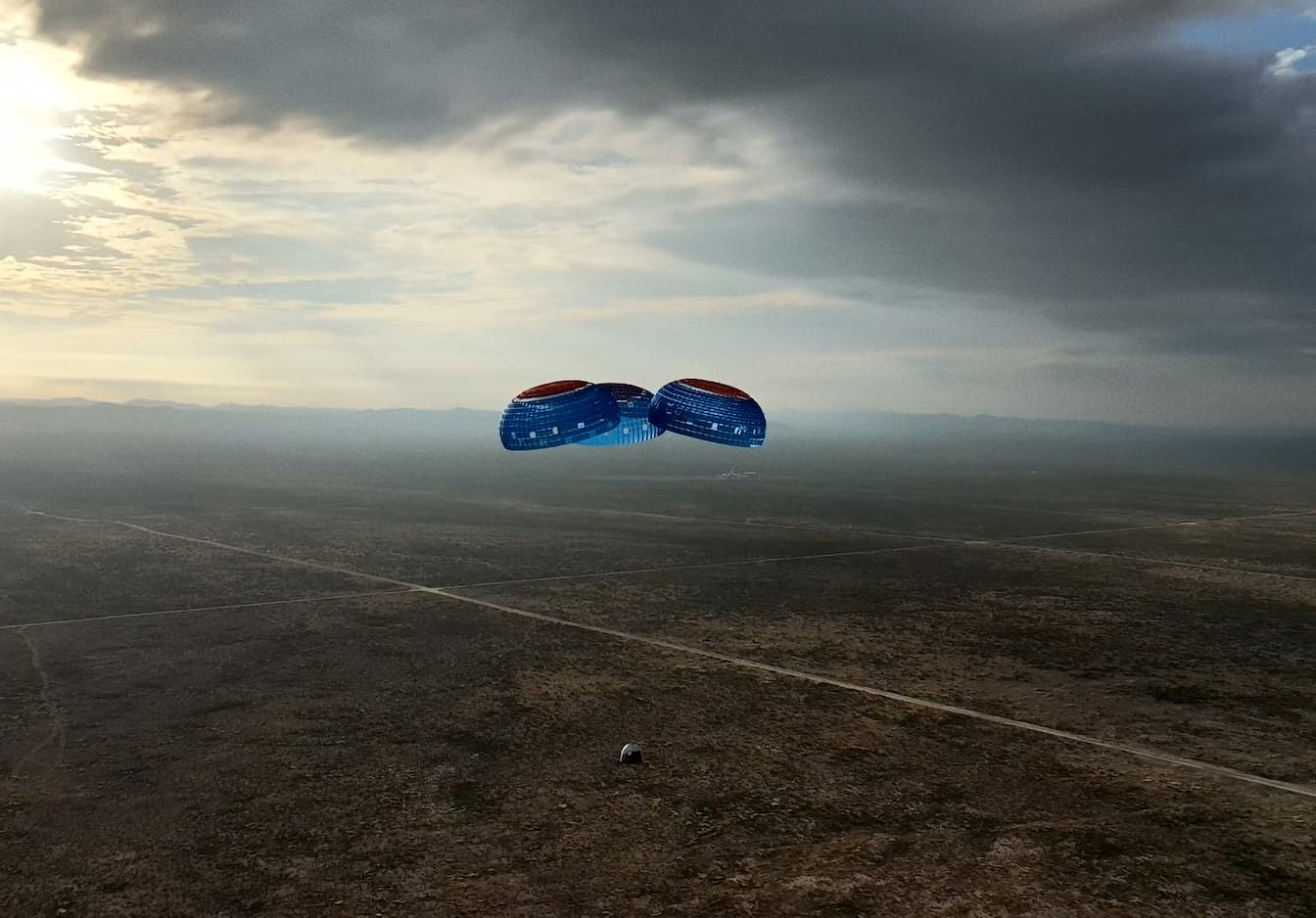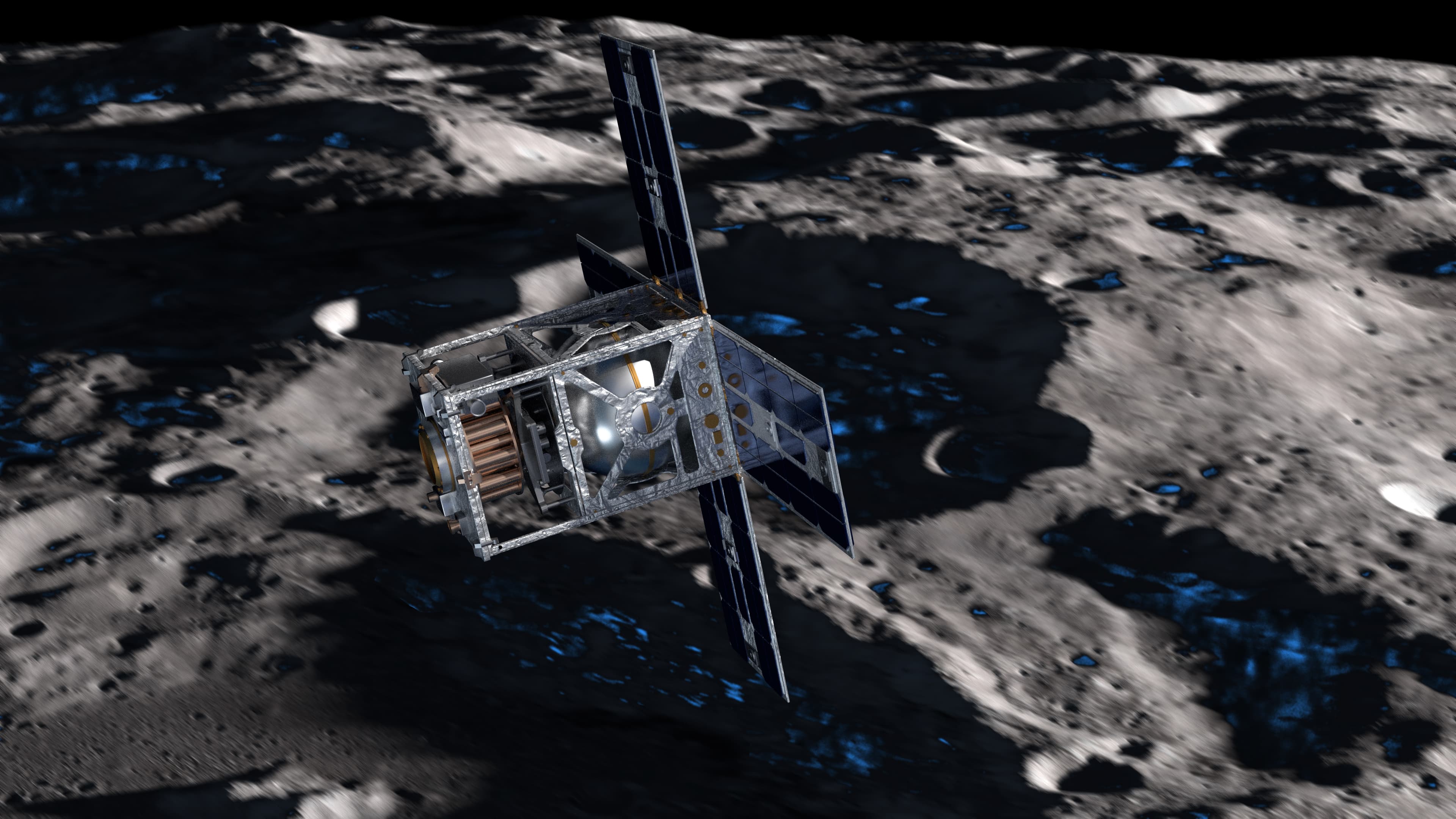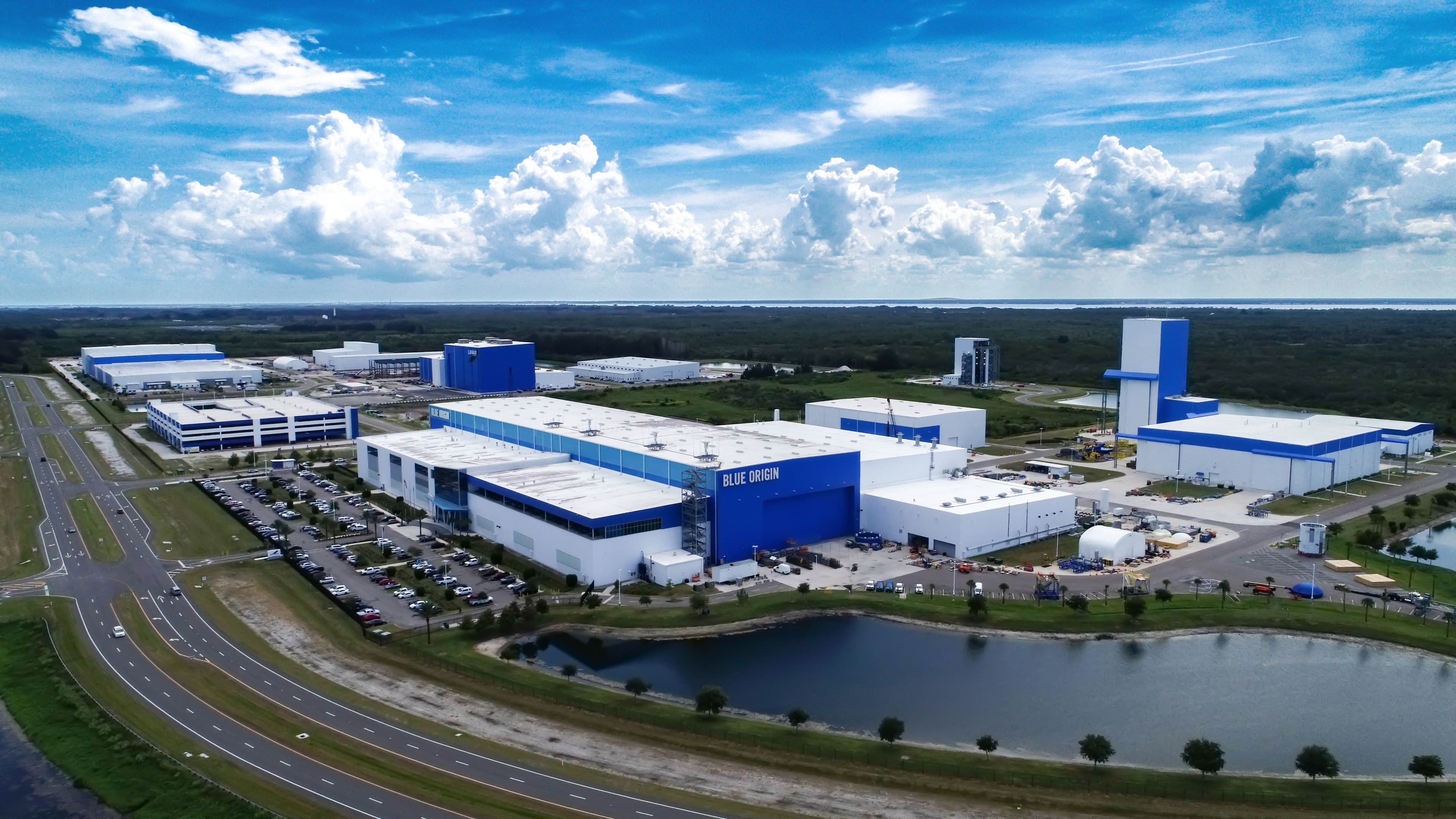
Payload Manifest on Mission 9

An awesome feature of New Shepard is its modular interior design. While in the future it will feature six seats to fly people, we’re already flying science and education experiments for microgravity research.
On Mission 9, we welcome our third round of payload customers from commercial companies, universities and space agencies. They will share the cabin with Blue Origin’s Mannequin Skywalker for their flight to space.
Below is a selection of customers slated to fly on Mission 9:
Schmitt Space Communicator Xperimental (SC1-x)
Solstar (Santa Fe, NM), developed with private funding and with support from NASA’s Flight Opportunities Program
On New Shepard Mission 8, Solstar demonstrated the first commercial WiFi in space. On this reflight, they will take advantage of the Crew Capsule’s high altitude escape and continue testing WiFi access throughout the flight.
GAGa (Granular Anisotropic Gases)
Otto-von-Guericke University (Magdeburg, Germany) with end-to-end service provider OLYMPIASPACE (Darmstadt, Germany) and funding from German space agency, DLR
The GAGa payload investigates the statistics of granular gases, dilute collections of solid grains that interact by random collisions. Data from GAGa on New Shepard Mission 9 will help validate existing theoretical models and contribute to understanding the dynamics of related systems like avalanches and cosmic dust clouds.
Suborbital Flight Experiment Monitor-2 (SFEM-2)
NASA Johnson Space Center (Houston, TX)
SFEM-2 was first flown on Mission 8 of New Shepard, and will collect additional data on Mission 9. The experiment will record vehicle conditions including cabin pressure, temperature, CO2, acoustic conditions, and acceleration.
Condensed Droplet Experiment for NASA in Sub-Orbital Spaceflight (ConDENSS)
Purdue University (West Lafayette, IN), funded through NASA Flight Opportunities Program
ConDENSS will examine the behavior of small droplets of water in order to support the development of small and efficient heat transfer systems for spaceflight. These systems, called phase change heat transfer systems, provide more uniform surface temperatures and higher power capacities.
APL Electromagnetic Field Experiment
Johns Hopkins University Applied Physics Laboratory, funded through NASA Flight Opportunities Program
This experiment marks the first flight of the JANUS 2.1 platform with sensors to monitor magnetic fields and ambient pressure inside the vehicle. Previous versions of JANUS were flown on New Shepard Missions 6 and 7.
Vibration Isolation Platform Data Logger
Controlled Dynamics, funded through NASA Flight Opportunities Program
VIP DL is a technology demo for an active stabilization platform that aims to allow the most sensitive payloads flying on New Shepard to be isolated from ambient vibrations, allowing for even higher precision microgravity studies.
mu Space-1
mu Space Corporation (Bangkok, Thailand)
The first of Blue Origin’s New Glenn customers to purchase a slot on New Shepard, mu Space’s payload includes an assortment of scientific and medical items, several textile materials they plan to use on their future space suit and apparel, and other special articles for their community partners.
Blue Origin “Fly My Stuff”
A special addition to the Mission 9 payload manifest is a suite of payloads from Blue Origin employees as a part of our internal “Fly My Stuff” program.
For more information on our payloads program, please visit https://www.blueorigin.com/new-shepard/payloads
-Gradatim Ferociter!
Share
Latest Posts
 Oct 8, 2025News
Oct 8, 2025NewsBlue Origin Completes 36th New Shepard Flight to Space
Blue Origin successfully completed the 36th flight for the New Shepard program. New Shepard has now flown 86 humans (80 individuals) into space.
 Sep 30, 2025News
Sep 30, 2025NewsBlue Origin and Luxembourg Partner on Oasis-1 Mission to Map Lunar Resources
Blue Origin today announced Project Oasis, a multi-phase initiative to identify key lunar resources from orbit, assess them on the ground, and harness them in situ.
 Sep 29, 2025News
Sep 29, 2025NewsFlorida Investment Matches Our Ambitious Growth Plans
Blue Origin employs nearly 4,000 people in Brevard County and has invested over $2.3 billion with 500 suppliers in Florida, generating significant economic growth and employment in the region.
